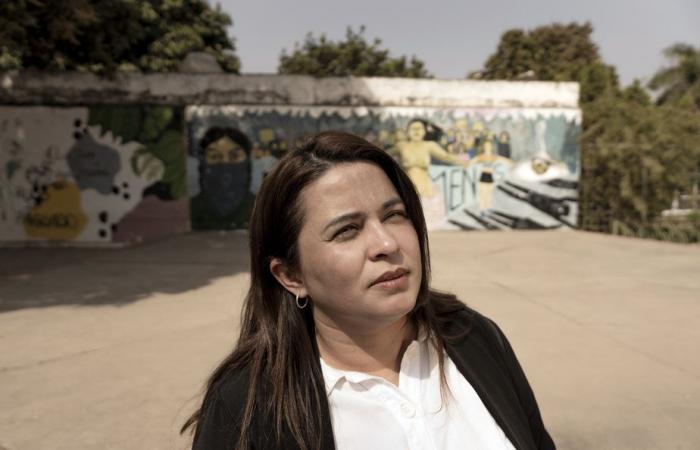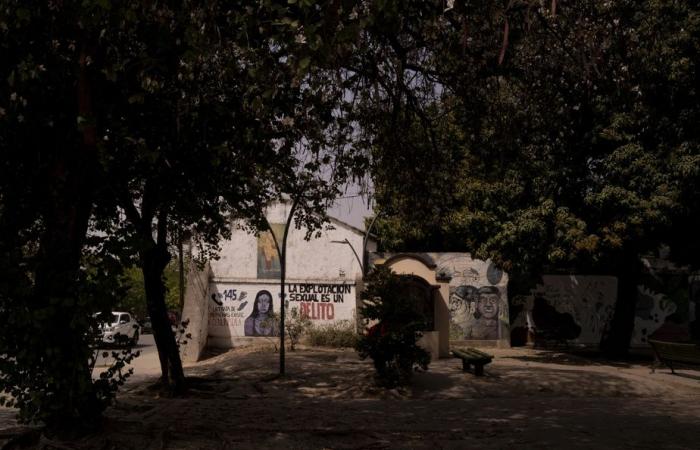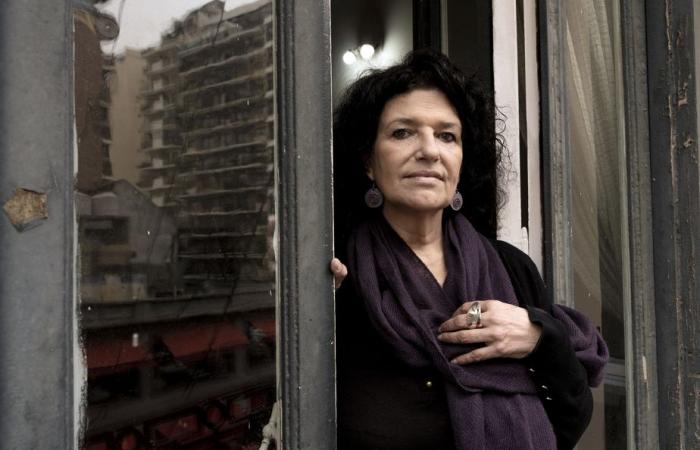(Buenos Aires) For three years, Silvia Alanis visited high schools in a small town in northern Argentina to teach sex education and distribute contraceptives, thanks to a federal program aimed at reducing the rate high rate of teenage pregnancy.
Published at 6:00 a.m.
Leila Miller and Natalie Alcoba
The New York Times
Today, this program has been largely dismantled by the government of President Javier Milei, for whom feminism is “ridiculous” and a threat to Western values; he calls abortion “murder.”
As part of a sweeping austerity plan aimed at pulling Argentina out of economic crisis, Mr. Milei has cut programs for women and opposes policies that promote gender equality and diversity.
About 600 employees at the teen contraceptive program — almost its entire staff — have been laid off this year. This program, which was active throughout the country, helped to significantly reduce pregnancies among young women, according to experts.
PHOTO ANITA POUCHARD SERRA, THE NEW YORK TIMES
Silvia Alanis worked for a federal program focused on areas of the country with high teen pregnancy rates.
Mme Alanis, one of those fired, recently received a message from a teacher at one of the schools where she worked. Two girls are pregnant, one 15 years old, the other 14 years old. “We really miss you,” we hear at the end of the message.
Contraception and beyond
Argentina had gained a reputation as one of the most progressive countries in Latin America. Large protests in 2015 against femicide inspired a women’s movement across the region. In 2020, Argentina became the largest country in Latin America to legalize abortion.

PHOTO RONALDO SCHEMIDT, AGENCE FRANCE-PRESSE
Argentine women celebrating the legalization of abortion in the streets of Buenos Aires, December 30, 2020
But Mr. Milei was elected president last year, convincing voters exhausted by hyperinflation that he would reverse the country’s economic decline through radical measures.
His government tackled the task with determination. The budget of Argentina’s Office of Sexual Health, which is mainly used to purchase and distribute contraceptives and abortion pills, was cut by two-thirds this year.
Since 1is January, the federal government is no longer replenishing stocks of abortion pills destined for Argentine provinces, according to the United Nations Population Fund and human rights groups. The provinces had to buy these pills themselves.
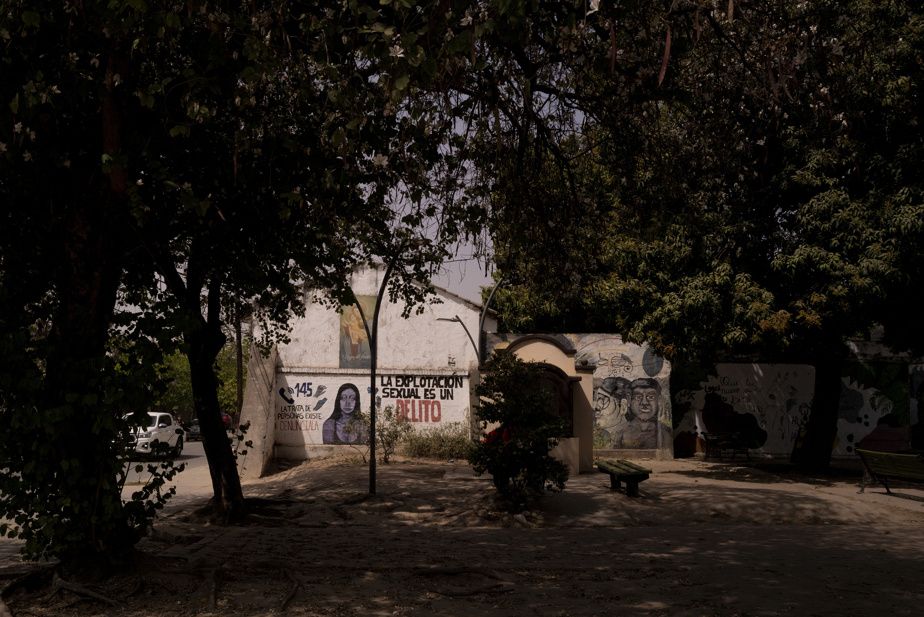
PHOTO ANITA POUCHARD SERRA, THE NEW YORK TIMES
A public art fresco with a feminist theme at the “Young People’s Square” in Orán, Argentina. Argentina had gained a reputation as one of the most progressive countries in Latin America.
The Milei government banned inclusive writing in official documents. On March 8 – International Women’s Day – he announced that the “Women’s Hall” at the presidential palace would be renamed the “Argentinian Heroes’ Hall”, a symbolic and revealing gesture, according to opponents of the regime. Portraits of female figures were replaced by those of former statesmen.
Slimming diet
Mr. Milei’s actions regarding programs for women are part of deep cuts in public spending, particularly in health, education and federal transfers to the provinces. They reduced the country’s budget deficit, and the monthly inflation rate fell from 25% in December to 3.5%. This success is welcomed by Mr. Milei’s supporters, investors and the International Monetary Fund, the country’s main lender.
But all this comes at a price.
Since Mr. Milei’s election in December 2023, the poverty rate has increased from 42% to 53% as of 1is July. Austerity measures, such as subsidy cuts, have made basic products less accessible to families.
This slimming diet is sparking protests in Argentine society, from university students to retirees. After taking office, Mr Milei closed the Ministry of Women, Gender and Diversity. He also closed the ministries of Transportation, Public Works and Education.
In speeches to high school students in Buenos Aires and at the World Economic Forum in Davos, he denounced the right to abortion. He defines feminism as an “unnatural battle between man and woman”.

PHOTO OF THE ARGENTINE PRESIDENCY, PROVIDED BY AGENCE FRANCE-PRESSE
Argentinian President Javier Milei
All this radical feminism has given is more state impediments to the economic process and more bureaucrats who contribute nothing to society.
Argentinian President Javier Milei
Mr. Milei also denounced Argentina’s policy of compulsory sex education in schools, which he said brainwashes children by teaching gender identity and leading to discussions about transgender people.
The end of a success
Argentina’s adolescent pregnancy prevention program was implemented in 2018 in 12 of the 23 provinces with the highest pregnancy rates.
From 2018 to 2021, the rate of babies born to adolescent girls aged 15 to 19 fell across Argentina. Various factors are at play, including the legalization of abortion and the changing social climate, experts say.
During this period, the decline was greatest – 46% – in the 12 provinces with a program targeting adolescents, going from 53 births to 29 births per 1,000 adolescents. In the rest of the country, the rate fell by 42%, from 40 to 23 births.
Faced with this conclusive result, the previous government had planned to extend the program to all provinces in 2023. But in April, to save around $1 million, the Milei government announced an “overhaul”. He fired staff at the program, which also trained teachers in sex education and connected sexual assault victims with legal aid and medical providers.
Argentina’s Health Ministry did not respond to numerous interview requests.
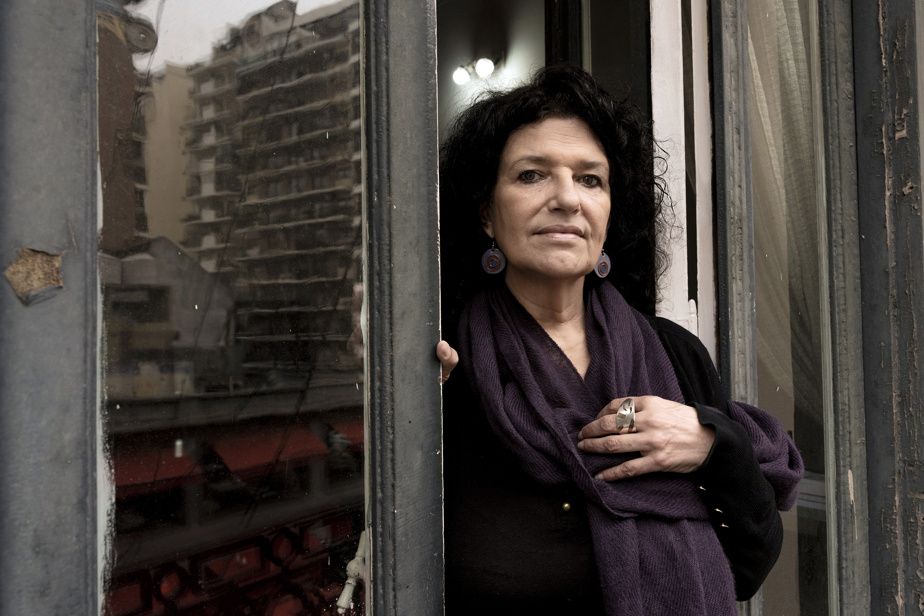
PHOTO ANITA POUCHARD SERRA, THE NEW YORK TIMES
Valeria Isla, who headed the Sexual Health Office of the Ministry of Health under the previous government.
Preventing teen pregnancy is a smart economic strategy, experts say, because young women who become pregnant often drop out of school and earn less. Congress is working to save the program through legislation.
“It’s a complete dismantling of public policy,” laments Valeria Isla, who headed the Sexual Health Office of the Ministry of Health under the previous government. “I find it very difficult to understand the reasons for this decision: the result is devastating. »
This article was published in the New York Times.
Read this text in its original version (in English; subscription required).


